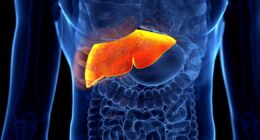
Co-Lead researcher Prof. Jason Mercer of the University of Birmingham, said: “Our current arsenal of pox anti-viral agents is limited and only available for emergency use, so new anti-viral treatments would be extremely valuable. Our research identifies a highly unusual ability to bring immunosuppressing proteins into the host right at the start of the infection. By understanding what proteins the virus brings and how they work, we can start to investigate how to exploit them for new treatments.”
Advertisement
While all viruses have the goal of invading cells and successfully replicating, they must also find ways to evade the body’s innate immune system – the broad-spectrum defenses against invading pathogens. In most viruses, this is by producing proteins during replication which can evade and attack the immune system. Pox viruses, in contrast, are unusual in that they contain and deliver immune-modulating proteins right at the start.
The research team identified 15 new proteins within the viral delivery packets called lateral bodies. Importantly, they found five ‘redox’ proteins, which are designed to interact with immune system elements called Reactive Oxygen Species.
Reactive Oxygen Species (ROS) are highly reactive molecules which play a key role destroying pathogens identified by the body’s innate immunity system. The redox proteins within the pox virus are released at the start of the infection specifically to seek out and suppress ROS.
READ RELATED: Women flock to expensive private menopause clinics due to NHS waiting lists, survey suggests
“Identifying the precise nature of the proteins contained with the lateral bodies was a complicated process because poxviruses are highly complex molecular structures,” added Professor Bernd Wollscheid, of ETH Zurich. “This work represents a big step in advancing our understanding of the molecular mode of action of this important family of viruses which is timely/relevant considering the current multi-country monkeypox outbreak in non-endemic countries.”
Next steps for the UK & Swiss research team will include testing the protein mechanisms in animal models to find out how they work individually and together to combat the host immune response.
Source: Eurekalert
Source:









